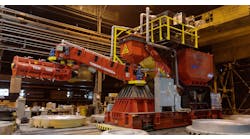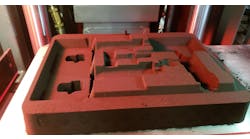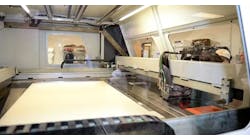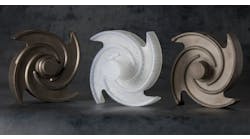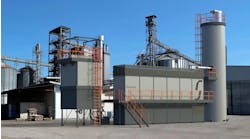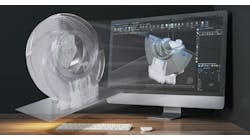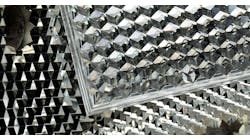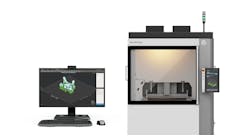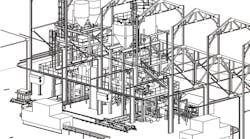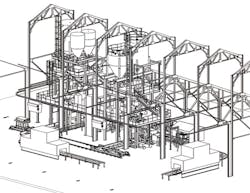Metalcasters increasingly are demonstrating demand for complete turnkey engineering solutions from the industry’s technology suppliers, and all indicators are that the trend will continue. The reason for this is simple: the efficiencies foundries gain from a complete turnkey solution – from single machines, equipment upgrades and small systems to complete foundry layout and design — are significant.
We routinely take inquiries from foundries seeking a variety of integrated engineering services, many times for the whole project, but, tellingly, not only for production machinery. More and more foundries request fully engineered layouts that reveal how new equipment will fit into their foundry and interact with their existing equipment. Also, they are requesting equipment suppliers to provide a complete solution, not just their own line of equipment but all the ancillary devices and systems, too.
Foundries looking both to simplify their improvement process and to reduce the time needed to complete the project benefit by giving complete responsibility to a single supplier. The advantages from these arrangements are significant, as they tend to eliminate many of the unwelcome effects of parceling out project responsibilities, such as: uneven project management, finger pointing over responsibility, out-of-control costs, and scheduling delays. The final result is project commissioning that is on-time and on-budget, and meets production goals.
The days of foundries managing all of their large (and sometimes small) upgrades are disappearing. For example, in the past, a foundry planning to improve its coremaking operations would source the core machine from one company, the scrubber from another, the sand silos and supporting structures from others, and still another company to handle the installation and commissioning.
Now, most foundry customers request a complete turnkey engineering solution in one proposal. Such a proposal should include a layout drawing that shows all of the equipment in the proposal and how it is placed in their plant. Many foundries will appreciate this information presented not only as a 2D illustration but also as a 3D model that demonstrates the finished project’s work flow. To demonstrate the installation, the proposal would include as well the man-power requirements along with the rigging equipment, and possible permits. It also would include the needs for in-plant utility services, such as gas pipes, electrical wiring, and conduit.
A critical detail of any project is the initial planning and engineering phase. Once the proposal is accepted, manufacturers can be asked to supply the customer with detailed drawings that show how and where the utility requirements are located, foundation and load requirements, along with plant wide power and air requirements.
This leads to another question: how should metalcasters evaluate an engineering provider? We suggest choosing providers that meet these criteria:
1. References to show that they understand and can develop systems on-time, on-budget and to production goals.
2. Global partners that demonstrate the ability to replicate a system on an international scale.
3. Project management skill to match engineered solutions to the size and complexity required, and that will assign to the customer a single point of contact.
4. Engineering capabilities that demonstrate in-house mechanical and electrical (including programming) proficiency, including the ability to demonstrate 2D/3D modeling, work flow, and custom design experience.
5. Manufacturing capabilities reflective of in-house manufacturing experience. Keeping more processes in-house will promote higher standards of quality control.
6. Assembly capabilities that are available for in-house inspection of assembled machines prior to shipment.
7. Product testing, with verifiable results presented before the equipment ships.
8. Installation/commissioning experience equal to the customer’s and project’s requirements.
9. Training, including training for personnel on location.
10. Post-sale support and service, including spare-parts availability.
EMI has complete turnkey engineering and manufacturing capabilities and is particularly well experienced in the metalcasting industry, including the insights necessary to assist foundry managers with decisions regarding all their production equipment, regardless of the original manufacturer. Our staff can also assist a foundry’s own plant engineering staff on a wide range of projects from small systems to complete global solutions.
Bill Vondriska is a sales manager and Joe McFarland is the operations manager, both with EMI, Inc. Visit www.emi-inc.com
